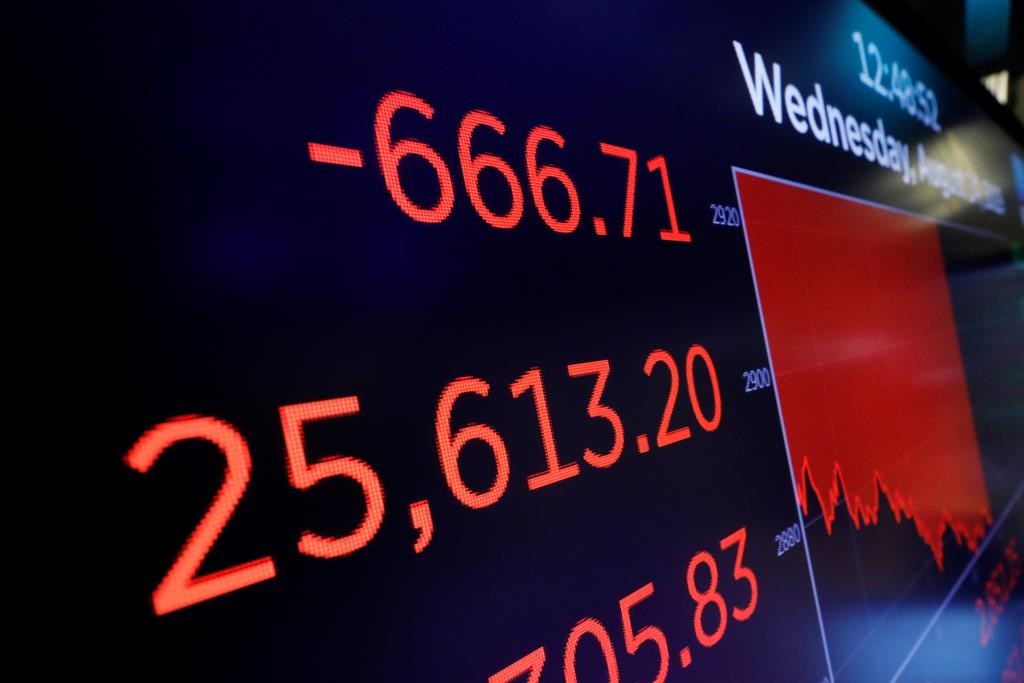The stock markets saw a lot of movement this week, which had many investors concerned. The Dow Jones dropped 800 points, the lowest drop in over a decade, and Canada’s main stock index also fell, mirroring a global slump in equities.

This could leave uncertainty for investors triggered by the fact the main yield curve has inverted. One reason for the inversion is the demand for safer bonds, derived from investors worried about future economic growth.
All of these factors could lead to investors re-evaluating their current plan, but fluctuations don’t necessarily reflect individual investment performance.
“If you are feeling apprehensive and uneasy about anything, it’s probably a good reason to pick up the phone and talk to your adviser, and just make sure that how your adviser has your portfolio set up is still reflective of how it should be,” said Jeff Brown of Regina’s M.R.E. Financial Services Corporation.
Brown added investors need to be aware of what they’re comfortable with when it comes to risk tolerance, objectives, and goals.
“These blips [in the market] that happen here and there are expected,” he said.
They are supposed to happen and usually, they are opportunities for your investment adviser and your professional to take advantage of some buying opportunities.”
He said the best step you can take is ensuring your portfolio is set up to manage extreme market drops.


Comments